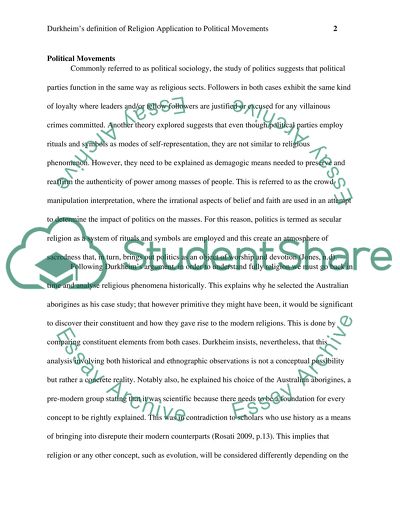Cite this document
(“Durkheims definition of Religion Application to Political Movements Essay”, n.d.)
Retrieved from https://studentshare.org/history/1478467-durkheims-definition-of-religion-application-to-political-movements
Retrieved from https://studentshare.org/history/1478467-durkheims-definition-of-religion-application-to-political-movements
(Durkheims Definition of Religion Application to Political Movements Essay)
https://studentshare.org/history/1478467-durkheims-definition-of-religion-application-to-political-movements.
https://studentshare.org/history/1478467-durkheims-definition-of-religion-application-to-political-movements.
“Durkheims Definition of Religion Application to Political Movements Essay”, n.d. https://studentshare.org/history/1478467-durkheims-definition-of-religion-application-to-political-movements.


